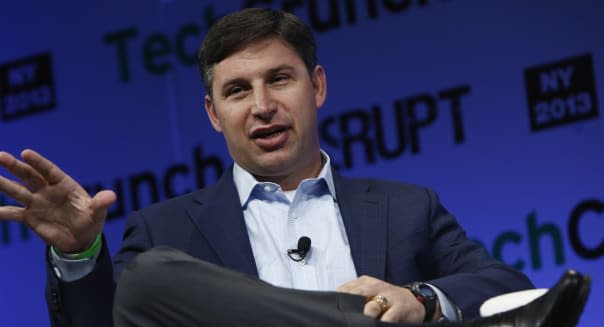Twitter Needs More Than Its Talented New Money Man

At the beginning of July, Twitter (TWTR) brought on a new chief financial officer, onetime Goldman Sachs (GS) executive Anthony Noto. He is knowledgeable about investment banking -- a big plus for his job -- and has hands-on experience with Twitter's books. Noto was a key member of the team behind Twitter's initial public offering last year during his stint at the investment bank.
Twitter made a smart hire, but the micro-messaging specialist will need more than talent and experience leading its finance department to push it into the black.
Short Messages, Net Shortfall
Twitter isn't profitable. Its bottom-line losses came in at $132 million in the company's first quarter this year following a $511 million loss the previous quarter. The company has good potential, with a wide user base and it great brand recognition. The problem is that popularity isn't bringing in hordes of converts.
%VIRTUAL-WSSCourseInline-449%At the end of the first quarter, the Twitter platform supported a worldwide total of 255 million average monthly active users (defined, rather loosely, as individuals who log in to their account at least once during the relevant month). But that figure is only 6 percent higher than the fourth-quarter 2013 tally, which in turn was 4 percent greater on a quarter-over-quarter basis. Zooming back a little, the company reported 9 percent to 11 percent user growth in every quarter of 2012, following a 2011 that ranged from just under 16 percent to 25 percent user growth in its four quarters.
Typically in the tech world, the expectation is that a company's growth should only slow after the profits roll in. Losses are typically expected during the growth phase, but not for long thereafter. Twitter's been around for a while, yet it still seems stuck in the red.
In-Your-Face Competition
Twitter might get more investor love if it weren't in a sector with more successful publicly traded companies. The mammoth of the market is Facebook (FB), which, although it isn't growing as robustly in terms of monthly active users as it once did, still eclipses Twitter's gains (specifically 7 percent quarter-on-quarter to almost 1.3 billion in its first quarter).
Facebook opened for full public use in 2006, the same year that Twitter launched. But in terms of financials, Facebook performs like a significantly more mature company. It's been solidly in the black since fourth quarter 2012. It's also grown its net profit and widened its net margin in every subsequent quarter. Despite a slump at the beginning of this year, Facebook's stock price is hovering near $70 per share. That's far above its $38 IPO price.
%VIRTUAL-pullquote-Perhaps a more revealing example of the importance of engagement is LinkedIn.%Perhaps a more revealing example of the importance of engagement is LinkedIn (LNKD). The business-focused social media outlet has seesawed in terms of profitability since its 2011 IPO, although it keeps improving its top line.
That helps, but perhaps most important for the unforgiving market, LinkedIn is good at growing the ranks of its members -- as the site is essentially a professional networking platform, this is arguably a more critical number than monthly active users.
LinkedIn's membership has ticked higher in every quarter the first quarter of 2009, from around 37 million, rising to roughly 296 million in the first quarter of this year -- a gain of a cool 700 percent.
LinkedIn shares have been hit harder than Facebook's, with the stock down $100 or so from the peaks it saw last summer. Despite that, at around $158 per share it's still well above its IPO price of $45.
Dollars Aren't Users
If share price moves are any indication, Twitter investors gave a thumbs-up to news of Noto's hire -- the stock added a little over $1 to close that day at just above $42.
Since then, however, the shares have slumped down by several dollars. Sure, they're still higher than their IPO price ($26), but the growth is nowhere near that of Facebook and LinkedIn.
Perhaps that reflects the market's attitude toward the company. Financial expertise is certainly welcome, but where the company really needs a boost is in its user base. Perhaps an executive who's a wizard at engagement will happen along; Twitter could really use the help.
Motley Fool contributor Eric Volkman owns shares of Facebook. The Motley Fool recommends Facebook, Goldman Sachs, LinkedIn, and Twitter. The Motley Fool owns shares of Facebook and LinkedIn.


